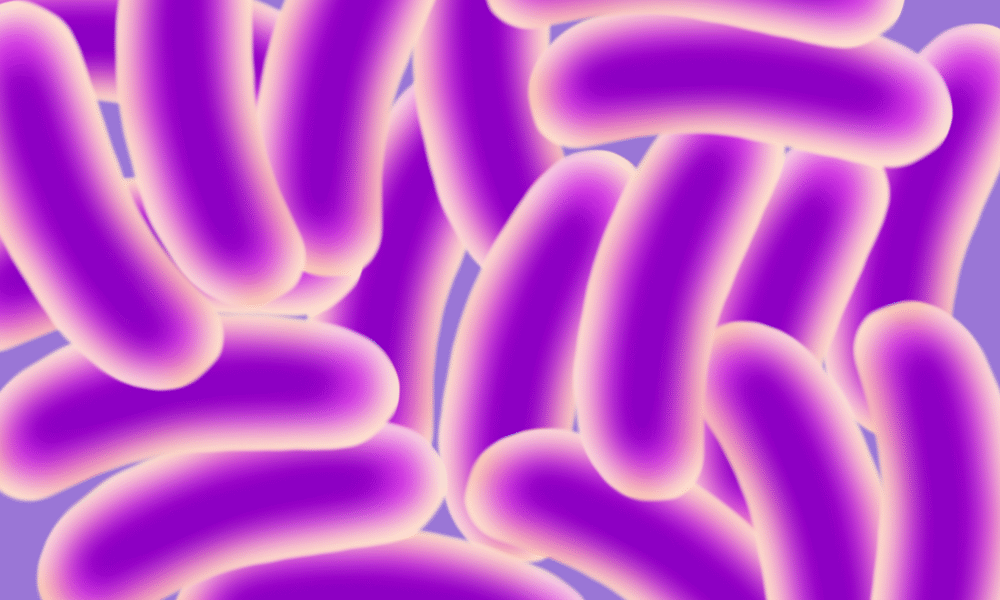Hidden deep within the human digestive tract lies a dynamic and complex population: The gut microbiota, a community of over 100 trillion microbial cells that influence the body far beyond digestion. Consisting of bacteria, viruses, eukaryotes, and archaea, a diverse microbiota has been shown to have many beneficial health effects, particularly in patients with cancer. But which of these countless microbes are responsible for transforming the beneficial compounds we get from our diet into molecules that can improve treatment outcomes?
This question has been the focus of researchers such as Arianna Giurleo, a second-year PhD student in McGill’s Pharmacology and Therapeutics program and member of the Castagner Lab. Her work explores how plant compounds called polyphenols interact with the gut’s microbiome. Gieurleo is particularly interested in identifying bacterial species that metabolize castalagin—a polyphenol isolated from the berry camu camu—to improve outcomes for cancer patients.
“Patients with cancer undergoing treatments like immunotherapy, when supplemented with castalagin-rich supplements, tend to do better [….] We’re interested in understanding which bacteria will break down castalagin into these downstream metabolites, which are beneficial for health,” Giurleo said in an interview with The Tribune. “I am currently looking at certain bacteria we’ve recently found that are capable of having this effect, and which genes or functions they use to do this.”
Giurleo explained that her motivation to pursue this research stems from a desire to bridge the gap between traditional research in microbiology and real-world applications.
“Microbiology can be very specific to just looking at a specific gene or bacteria, but it doesn’t really have as much translation as I would have liked [….] Having my own research be [applicable] to something that might help people down the line, such as in the form of a drug, is why I’m here now,” she said.
High levels of polyphenols are widely present in a variety of everyday foods.
“Polyphenols are obtained from our diet, mostly through fruits, vegetables, teas, nuts, and some wines,” Giurleo said. “Pomegranates and walnuts are what have been particularly studied the most.”
Gut bacteria play many roles, from harvesting energy from food to producing neurotransmitters like serotonin and essential vitamins such as vitamin K. However, diet seems to be the most powerful influence for the establishment of a diverse gut microbiome. Non-digestible dietary compounds known as prebiotics, often found in fibre-rich foods such as berries, are key nutrients for stimulating the growth and activity of new gut flora.
“Your gut microbiome is connected to so many things, and it’s crucial for general homeostasis of health [….] It’s really important to pay attention that what you’re eating is right, so that you can continue to keep proper functioning of your microbiome,” she said.
Giurleo discussed how even her own habits have changed as a result of her research.
“I have been a bit more aware of my overall diet, and I now try to implement a lot more fibre-rich things,” she said.
The gut microbiota undergoes extensive changes across the lifespan, and these alterations may influence the gut’s ability to metabolize beneficial compounds. Although unable to disclose her exact results due to the ongoing nature of her research, Giurleo’s work is part of a growing body of epidemiological studies that have shown that polyphenols offer protection against the development of cancer, as well as induce a reduction in tumour formation and growth. These effects have been observed at several sites of the body, such as the mouth, stomach, intestines, and liver.
Giurleo concluded by pointing out that polyphenol intake will not be very effective without a pre-established strong microbiome. She highlights the importance of maintaining a healthy gut so that it can continue to protect us, particularly from metabolic diseases.
“We can take in all the polyphenols we want, but without them being broken down or transformed [by the proper microbes], there won’t be any benefit,” she said.








